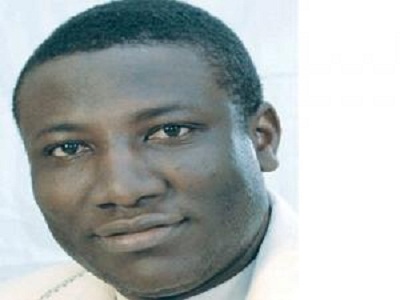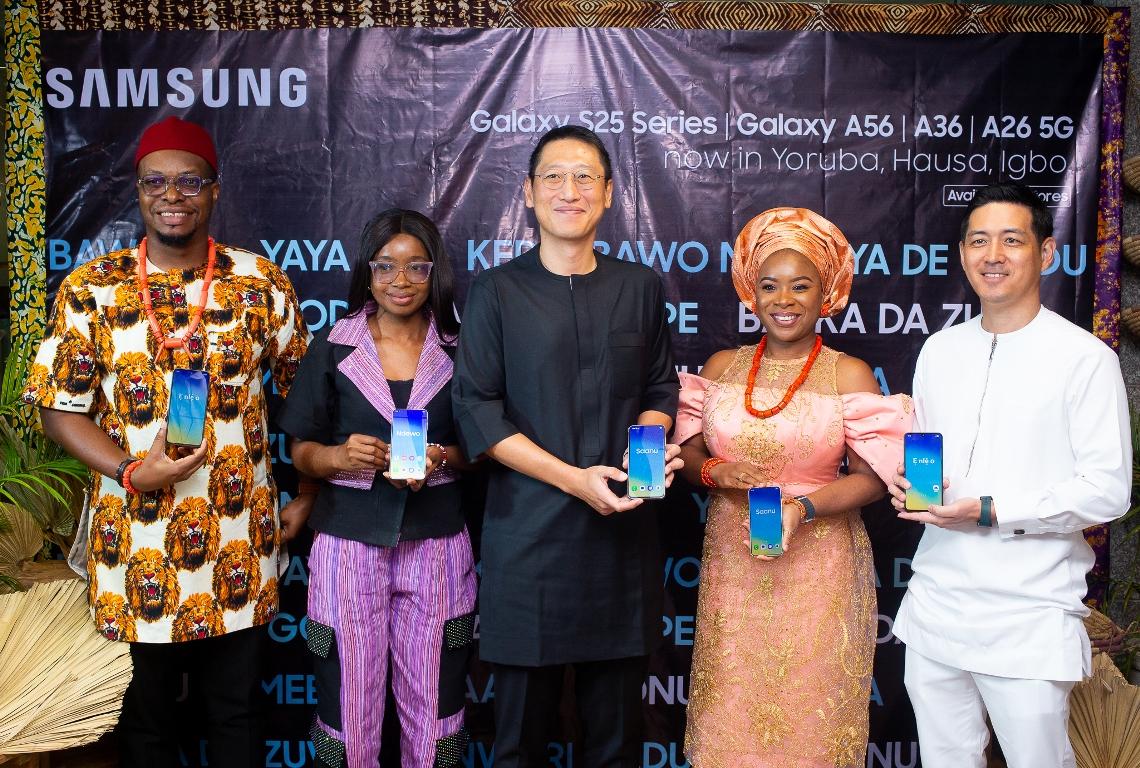Telecom
Communication Satellite can Deliver Broadband, NigComSat Boss

Engr. Timasaniyu Ahmed-Rufai, chief executive officer, Nigerian Communications Satellite Limited (NigComSat) has x-rayed how broadband could improve economics and create a win-win situation for governments and concluded that his agency has the ingredients to add pep to the broadband revolution.
Speaking at the 2013 e-Nigeria conference on local content hosted by Nigerian IT Development Agency (NITDA) recently in Abuja, Ahmed-Rufai asked in his paper “Satellite based broadband in Nigeria, prospects and challenges” Why Broadband? and listed the seemingly misgivings and skepticism of policy makers that broadband can actually deliver services and improve the wellbeing of citizens?
He provided some answers in his paper, listing various aspects of broadband delivery, which include Asymmetric Digital Subscriber Line (ADSL), Digital Subscriber Line (DSL), Cable broadband, Wireless broadband like GSM, WIMAX, CDMA and Wi-Fi, Symmetric broadband (SDSL) and Satellite broadband via Communications Satellite on varying bands including Ku, C and most recently higher spectral frequencies like Ka-band and beyond.
According to the NigComSat boss, Africa remains the least wired continent in the world today “in terms of robust telecommunications infrastructure and systems to cater for its nearly one billion population”.
This underscores the reason for high demand in the form of communication satellites and variants of terrestrial wireless systems more than in any other continent for the sole purpose of bridging its digital hiatus, complementing the group of inadequate terrestrial ICT infrastructure in the rural areas, swampy and landlocked terrains thus playing a critical role of delivering ICT readiness in un-served and underserved areas.
In Nigeria for instance there is a combined landed submarine optic fibre capacity of over 10 terra bit per second (Tbit) but only about 0.5Tbps gets to the hinterland.
Besides: Internet penetration stands at 33% while broadband penetration is put at 6%; 72.25% of access is via wireless networks, mainly GSM while the remaining 27.75% access is via other media; and 2G mobile coverage is 65% while 3G is only 35% and this is concentrated in urban areas so technically only urban areas enjoy the luxury of broadband.
And in a country where over 70% of its population resides in the rural areas, he said the limitation of access to broadband via cable may be bridged via NigComSat-1R which could serve as conduit to improve access links but sadly NigComSat-1R is today grossly underutilised.
The effect is that huge capacity of cable broadband is left at the shores thereby encouraging capital flight which is put at $450m yearly spent on bandwidth purchase from abroad.
Ahmed-Rufai emphasized that Communications Satellite is the answer as a “low hanging fruit” to meet short and medium term plans of the National Broadband Plan, because “if we must optimize access to information and guarantee universal access in the short and medium term to all citizens, including those in the remote areas then communication satellite should remain within the framework of our ICT policy and broadband implementation to complement existing but inadequate terrestrial infrastructure as well as strategic national and continental telecommunication infrastructure during natural disasters and emergencies.”
He also advised that there should be a policy by government on the use of satellite broadband as primary source of internet in rural and swampy areas with associated ground technologies and redundancy in areas with optic fibre to mitigate against cuts, damages and theft considering our geography, lack of channelized roads, subways, railways and poor urban and regional planning.
Ahmed-Rufai said Satellite Communications can indeed deliver broadband because it has been a major means of broadcast, mass media, free to air TV, medical science especially Tele-medicine, e-learning among others.
NigComSat-1R was launched December 19, 2011, and it is a quad band made up of C, K, Ka, and L bands. There are 40 transponders out of which 28 are active while 12 are redundant. Commercial activities on the satellite began on March 19, 2012 after a successful In-Orbit Test (IOT) and In-Orbit Delivery (IOD) with modest achievement in terms of improving and driving national broadband access in homes, offices, businesses, schools in Nigeria as well as prospects and potentials outside Nigeria.
Telecom
Mafab Communications Has Launched 5G Services- Findings

Contrary to media some media reports yesterday, Mafab Communications, one of the companies granted Fifth Generation (5G) licences by Nigerian Communications Commission (NCC) has actually rolled out its 5G network services in Abuja since 2023.

According to Nigeria CommunicationsWeek findings, the rollout came almost a year since the telco paid $273.6 million for spectrum in the 3.5GHz band as part of a government auction.
Mafab Communications, has, not however kept to its promise to to strengthen its commercial operations by March 2025 as its services has remained skeletal since the media launch.
It said that it will roll out its high-speed 5G services through 102 operational sites strategically located in Kano and Abuja but that did not happen as at close of March.
An insider in the company, however assured that starting this month, subscribers with Mafab’s 5G routers will be able to enjoy ultra-fast connectivity on its expanding network.
This move aims to capture a wider share of Nigeria’s growing demand for 5G services.
Dr Musbahu Bashir, founder and chairman, Mafab Communications, said during the rollout launch that the telco will offer both voice and data services nationwide.
Additionally, Nigerian cities like Lagos, Port Harcourt, Enugu, Kano, and Kaduna have been listed for the deployment of 5G services while those not on the list will have services deployed at a later stage.
“The rollout of Mafab Communications 5G network is the beginning of immense opportunities for the country as it represents Nigeria’s capabilities and infinite possibilities,” he said.
“The prospect of increased job opportunities as a consequence of the value-chain benefits the technology will generate and offer is the dream we have all gathered here to launch today,” Bashir continued.
Telecom
Samsung Introduces Local Nigerian Languages to Galaxy Devices, Celebrating Cultural Diversity

Samsung Electronics has taken a bold step in enhancing user experience and inclusivity by introducing Hausa, Igbo, and Yoruba as official language options on selected Samsung Galaxy devices.

L-R: Stephen Okwara, Head, Product Management, Mobile Experience, Samsung Electronics West Africa; Joy Tim-Ayoola, Group Head, Mobile Experience, Samsung Electronics West Africa; Tae Sun Lee, Samsung Electronics West Africa CEO; Oge Maduagwu, Head of Marketing Samsung Electronics West Africa, and Nathan Lee, Regional Business Lead, Mobile Experience, Samsung Electronics West Africa, at the launch of Nigeria local language integration on Galaxy S25, A56, A36, and A26 devices, on April 03, 2025.
The feature, which is now available on the Galaxy S25, A56, A36, and A26 devices, reaffirms Samsung’s commitment to delivering innovative technology that speaks the language of its users.
With this groundbreaking update, Samsung users across Nigeria can now navigate their smartphones in their preferred local language, making technology more accessible, while also upholding our cultural heritage.
A Celebration of Culture and Technology
To mark the launch, Samsung hosted a cultural-themed press briefing featuring traditional music, local cuisine, and a showcase of the new language feature. Employees and guests attended in traditional Yoruba, Igbo, and Hausa attires, celebrating Nigeria’s rich cultural diversity.
Samsung also announced plans to expand local language support to more devices in the near future, reinforcing its dedication to making technology more inclusive for African users.
Empowering Users Through Language
The integration of Hausa, Igbo and Yoruba on Samsung devices reflects the brand’s mission to bridge the digital gap and enhance user engagement. Speaking at the press conference, Oge Maduagwu, Head of Marketing, Samsung Electronics West Africa, said, “At Samsung, we understand that technology is most powerful when it is accessible to all.
“By incorporating our local Nigerian languages, we are making our devices more intuitive and relatable, ensuring that millions of Nigerians can interact with their smartphones in the language they love and understand best”.
Seamless Language Transition on Galaxy Devices
Stephen Okwara, Head of Product Management, Samsung Electronics West Africa added, “The new local language feature is designed to deliver a seamless user experience, allowing customers to easily switch between languages. Users can activate Hausa, Igbo, or Yoruba on the Galaxy S25, A26, A36, and A56 by navigating to: Settings > Language & Input > Select Language
“This update enhances smartphone usability, particularly for those who prefer their native language over English, ensuring greater digital inclusivity, enhancing digital literacy and encouraging more users to engage with technology in their native tongues” He concluded.
Availability
Customers can visit all Samsung Experience Stores or authorized retailers in Nigeria to learn more and experience the feature firsthand.
Telecom
Sophos Reveals Key Findings: 56% of Cyberattacks Exploit Valid Credentials

Sophos, a global leader of innovative security solutions for defeating cyberattacks, has released the 2025 Sophos Active Adversary Report, which details attacker behaviour and techniques from over 400 Managed Detection and Response (MDR) and Incident Response (IR) cases in 2024.

The report found that the primary way attackers gained initial access to networks (56% of all cases across MDR and IR) was by exploiting external remote services, which includes edge devices such as firewalls and VPNs, by leveraging valid accounts.
The combination of external remote services and valid accounts aligns with the top root causes of attacks. For the second year in row, compromised credentials were the number one root cause of attacks (41% of cases). This was followed by exploited vulnerabilities (21.79%) and brute force attacks (21.07%).
Understanding The Speed of Attacks
When analyzing MDR and IR investigations, the Sophos X-Ops team looked specifically at ransomware, data exfiltration, and data extortion cases to identify how fast attackers progressed through the stages of an attack within an organization. In those three types of cases, the median time between the start of an attack and exfiltration was only 72.98 hours (3.04 days). Furthermore, there was only a median of 2.7 hours from exfiltration to attack detection.
“Passive security is no longer enough. While prevention is essential, rapid response is critical. Organizations must actively monitor networks and act swiftly against observed telemetry. Coordinated attacks by motivated adversaries require a coordinated defense. For many organizations, that means combining business-specific knowledge with expert-led detection and response. Our report confirms that organizations with proactive monitoring detect attacks faster and experience better outcomes,” said John Shier, field CISO.
Other Key Findings from the 2025 Sophos Active Adversary Report:
· Attackers Can Take Control of a System in Just 11 Hours: The median time between attackers’ initial action and their first (often successful) attempt to breach Active Directory (AD) – arguably one of the most important assets in any Windows network – was just 11 hours. If successful, attackers can more easily take control of the organization.
· Top Ransomware Groups in Sophos Cases: Akira was the most frequently encountered ransomware group in 2024, followed by Fog and LockBit (despite a multi-government takedown of LockBit earlier in the year).
· Dwell Time is Down to Just 2 Days: Overall, dwell time – the time from the start of an attack to when it is detected – decreased from 4 days to just 2 in 2024, largely due to the addition of MDR cases to the dataset.
· Dwell Time in IR Cases: Dwell time remained stable at 4 days for ransomware attacks and 11.5 days for non-ransomware cases.
· Dwell Time in MDR Cases: In MDR investigations, dwell time was only 3 days for ransomware cases and just 1 day for non-ransomware cases, suggesting MDR teams are able to more quickly detect and respond to attacks.
Ransomware Groups Work Overnight: In 2024, 83% of ransomware binaries were dropped outside of the targets’ local business hours.
· Remote Desktop Protocol Continues to Dominate: RDP was involved in 84% of MDR/IR cases, making it the most frequently abused Microsoft tool.
To shore up their defenses, Sophos recommends that companies do the following:
· Close exposed RDP ports
· Use phishing-resistant multifactor authentication (MFA) wherever possible
· Patch vulnerable systems in a timely manner, with a particular focus on internet-facing devices and services
· Deploy EDR or MDR and ensure it is proactively monitored 24/7
· Establish a comprehensive incident response plan and test it regularly through simulations or tabletop exercises
Read the full It Takes Two: The 2025 Sophos Active Adversary Report on Sophos.com.

 General News3 days ago
General News3 days agoAirbnb Community Fund Donates ₦13 Billion to Nonprofits Worldwide

 General News3 days ago
General News3 days agoNigerian Military Makes History with Africa’s First Attack Drones, Bombs

 Telecom2 days ago
Telecom2 days agoMTN Denies Data Theft Allegations, Says no Financial Incentive to Do So

 News3 days ago
News3 days agoShell, Renaissance Face Legal Action over SPDC Licence Transfer

 E-Business3 days ago
E-Business3 days agoKike, Nigerian Tech Firm Launches ‘Kike AI’ for Kitchen Innovation

 Telecom3 days ago
Telecom3 days agoNigeria Heads Anglophone Data Protection Committee

 E-Financial3 days ago
E-Financial3 days agoSterling Bank Makes Online Transfer Charges Free of Charge

 Telecom2 days ago
Telecom2 days agoVitel Wireless, Nigeria’s First MVNO to Launch Operations This Quarter



























